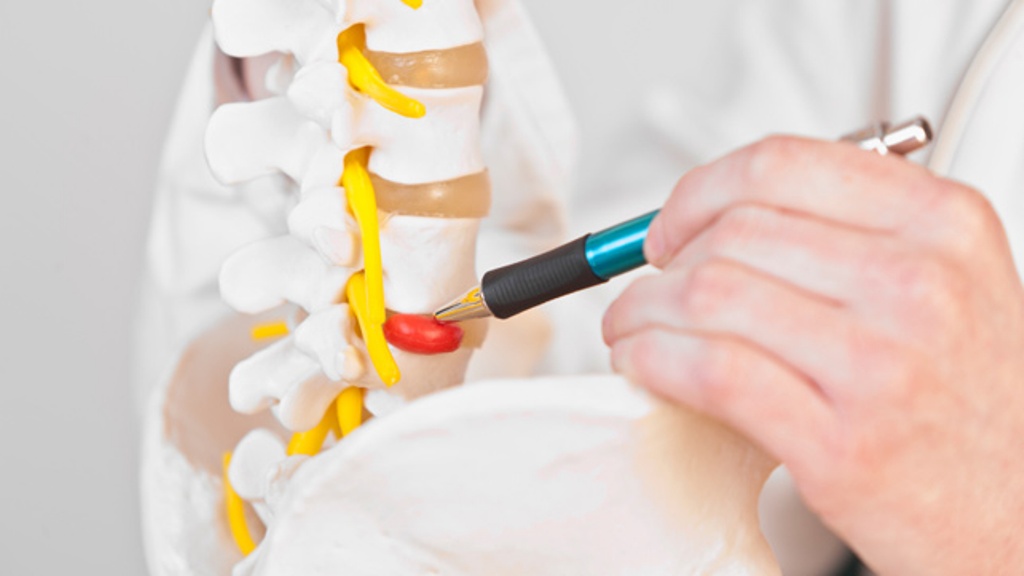
What is Herniated Disc Surgery
Having surgery for a herniated disk is fairly uncommon. Dr. Gerald Alexander, Orthopedic Spine Surgeon says on his website that there are more than a few names related to spinal disc pathology, generally associated with intense pain, terms like “herniated” or “bulging” disc, or “pinched nerve”. Sometimes these terms are used interchangeably, adding to the lack of clarity. Luckily, most people who experience a herniated disc will not need to have open surgery.Herniated Disc Surgery is only recommended after long periods when problems with a disk continue after medication is prescribed. It is considered a last resort option even after a patient has gone through many types of physical therapy. Still, it is good to understand what happens during a surgery to alleviate the pain and immobility that is associated with a herniated spinal disk.
What is Disk Herniation?

The vertebrae of the spine are each cushioned by disks made of soft tissue. These disks protect the spinal cord, reduce spinal pressure during movements, and provide adequate separation within the spinal column. Spinal disks are held in place by strong pockets of tissue that withstand compression.
Improper movements, age, bone degradation, and disease can cause the pockets around each disk to weaken. Small portions of the disk can move and impinge between the bony portions of the spine. This impingement can interrupt the natural impulses of the spinal cord, and will cause bones and muscles in the back to become misaligned. This condition can cause severe and lasting pain.
Types of Herniated Disk Surgery

Most of the time, pain from a herniated disk can be treated with pain medication and proactive physical therapy. If these things are deemed to be insufficient, surgery could be recommended. Disk surgery must be validated by physician recommendation and positive results of certain tests. CT and MRI scans provide visual evidence for the recommendation of disk surgery.
Disk surgery involves accessing the point of the spine that has a “seeping” disk. Some surgeries remove the mobile disk portions. Other surgeries remove parts of the spine that make a herniated disk painful. In each case, a small incision is required. Also, there is usually a lengthy recovery period that allows the spine to return to a natural way of functioning. The following are the most common types of herniated disk surgeries.
Diskectomy

This surgery requires a small incision in the back. During this procedure the bulging disk portion is completely removed. This is the most common type of disk surgery, and requires a long recovery period. It is very effective in curing localized herniations.
Microdiskectomy

This surgery is just like a standard diskectomy, but microscopic tools, including cameras, are utilized. A very small incision is made, muscle and tissue is separated for access, and the bulging disk is “scraped” away.
Artificial Disk Implantation

If a degraded vertebrae is causing a disk to bulge, it can be replaced. Artificial disks are implanted through anterior surgical access. This means, a physician will work through an incision made in the abdomen. Degraded vertebrae are removed, disks are replaced, and plastic and metal substitute vertebrae are installed.
Spinal Fusion

This is the least common surgery for a herniated disk. If the spine is in a state of decay, a physician can fuse vertebrae together. This involves the installation of appliances like metal rods. This procedure permanently fuses several portions of the spine together in order to prevent future herniation. This surgery is very effective, but will likely result in the loss of range of motion.
Laminotomy

Instead of removing the herniation, this surgery removes a bony structure of the spine. This action removes pressure from the area that is affected. This is sometimes the best option for patients who have herniated disks because of natural abnormalities in their spinal column.
Modern spine medicine has greatly improved in the past few decades. This is because of access to scanning technologies that provide specialists with insights that allow more accurate diagnoses of spinal problems. If a person undergoes a surgery for a herniated disk, they should expect a lengthy recovery period. This time will be filled with various forms of physical therapy, and utilizing resources for learning about the proper care of the spine.




